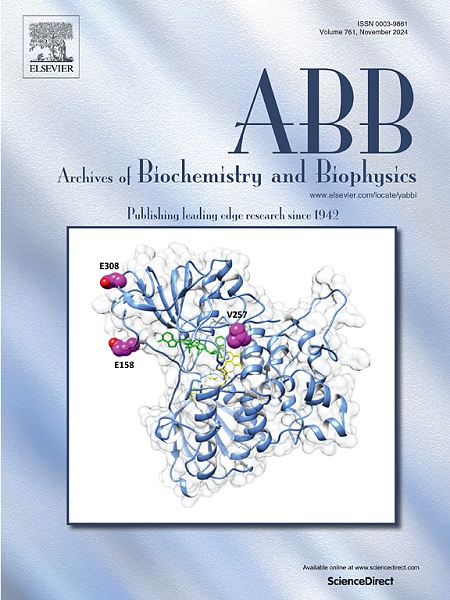Pericentriolar material 1 aggregation maintains cell survival upon prolonged replication stress
IF 3.8
3区 生物学
Q2 BIOCHEMISTRY & MOLECULAR BIOLOGY
引用次数: 0
Abstract
The centrosome is essential for maintaining cell shape and facilitating cell division. Thus, precise control of centrosome copy numbers is crucial for proper chromosome segregation. Pericentriolar material 1 (PCM1) is a scaffold component of centriolar satellites—electron-dense granules dispersed around the centrosome—that regulate the centrosome or primary cilia. It has been shown that disrupting PCM1 aggregation by treating cells with sodium orthovanadate inhibits centrosome amplification. However, sodium orthovanadate is a protein tyrosine phosphatase and may have off-target effects on the centrosome. To further confirm the role of PCM1 aggregation in promoting centrosome amplification, we disrupted PCM1 aggregation by interfering with microtubule networks, inhibiting the dynactin motor complex, or depleting PCM1. Centrosome copy numbers were then examined under conditions of prolonged replication stress. Our data suggest that PCM1 aggregation does not promote centrosome amplification in osteosarcoma U2-OS or pancreatic ductal adenocarcinoma PANC-1 cell lines. Instead, we found that centrosome amplification promoted PCM1 aggregation in a PLK4-dependent manner. Furthermore, we observed that PCM1 depletion inhibited U2-OS cell survival under prolonged replication stress. Prolonged replication stress induced DNA damage signaling via the ATM-CHK1 axis and autophagy to maintain cell survival, while PCM1 depletion alleviated ATM, CHK1, and autophagy activity, thereby reducing cell survival. Our findings propose that PCM1 does not facilitate centrosome amplification but instead induces activation of the ATM-CHK1 axis and autophagy to sustain osteosarcoma cell viability during prolonged replication stress.

求助全文
约1分钟内获得全文
求助全文
来源期刊

Archives of biochemistry and biophysics
生物-生化与分子生物学
CiteScore
7.40
自引率
0.00%
发文量
245
审稿时长
26 days
期刊介绍:
Archives of Biochemistry and Biophysics publishes quality original articles and reviews in the developing areas of biochemistry and biophysics.
Research Areas Include:
• Enzyme and protein structure, function, regulation. Folding, turnover, and post-translational processing
• Biological oxidations, free radical reactions, redox signaling, oxygenases, P450 reactions
• Signal transduction, receptors, membrane transport, intracellular signals. Cellular and integrated metabolism.
 求助内容:
求助内容: 应助结果提醒方式:
应助结果提醒方式:


